Making Money Work: can innovations in monetary policy promote long-term prosperity?

Earlier this week, Positive Money hosted the biggest discussion on the future of UK monetary policy since the election. Here’s a brief review of the event. We’ll publish a video of it shortly.
Is Westminster finally waking up to the potential of innovative monetary policies to drive sustainable growth? The past few weeks have seen Labour’s leadership rivals debate the merits of the ‘people’s quantitative easing’ proposal.
Supporters of the policy argue that it represents a smart way of directing cash to productive areas of the economy without any extra cost to the public purse. But little is known about the details. How would it work? Is it relevant to today’s economic circumstances? And what does it mean for the future relationship between the Treasury and the Bank of England?
Similar innovations have been proposed by some of the world’s leading economists, and among them is Lord Adair Turner, former Chairman of the Financial Services Authority, and now Chairman of the Institute for New Economic Thinking.
On Monday 7th September, Positive Money hosted a high-level panel discussion, “Making Money Work”, with Lord Adair Turner, Professor Steve Keen (Kingston University) and Chris Giles (Financial Times) in Central Hall Westminster. It was chaired by Fran Boait, Executive Director of Positive Money, who kicked off the event by discussing how politicians and economists’ limited understanding of money creations a major problem if we are going to tackle the challenges we face.
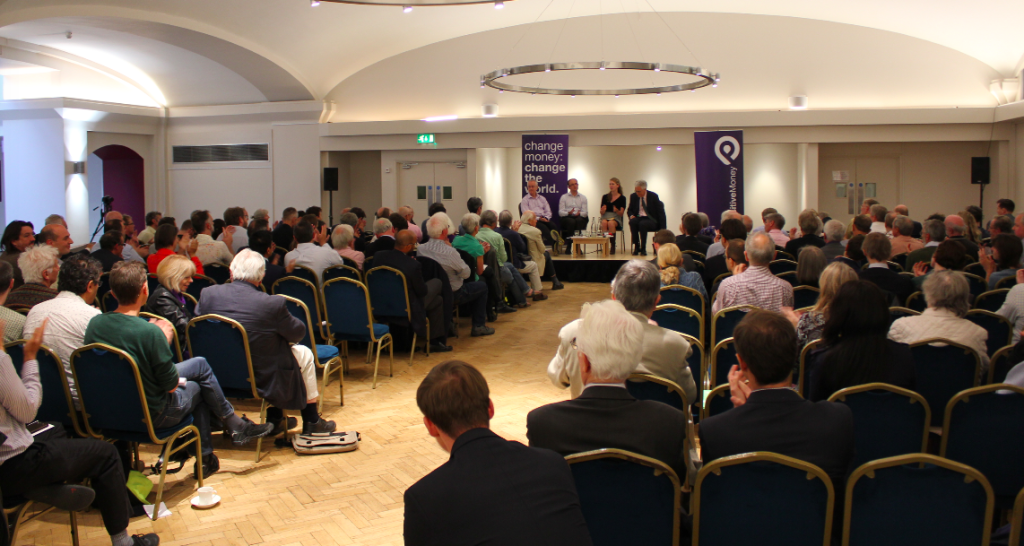
As far as we know it’s the biggest event on monetary financing that has ever taken place.
Lord Turner described Positive Money as an “organisation which has rightly focused our attention on some of the really fundamental issues in economics, about the nature of money and where purchasing power comes from.”
“I do believe that it is impossible to understand why the 2008 crisis occurred and even more why the recovery from that crisis has been so extraordinary difficult and slow, without addressing those fundamental issues about the nature of debt, nature of credit, nature of money and where purchasing power comes from, which Positive Money have encouraged us to think about.”
The event was attended by around 200 people, including leading figures in finance and civil society. Those taking part included Richard Murphy, advisor to Jeremy Corbyn, Natalie Bennett, leader of Green Party, as well as ex-banker and economics commentator Frances Coppola.
Just before Lord Turner’s presentation the audience was asked two questions:
“Do you think the next financial crisis is just around the corner?”
“Do you think we need to consider new innovations in monetary policy?”
The answer to both questions was unanimously “yes”.
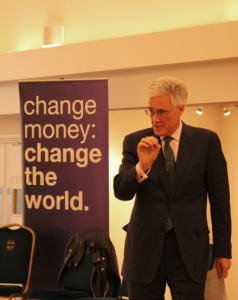
Lord Turner gave a talk on how the monetary system works, the dangers of debt-fuelled growth and monetary financing as a new monetary policy tool that should be considered by governments and central banks.
He started by remarking that the crucial implications of money creation by private banks have been highlighted by a range of economists:
“Interestingly, the inability to accept money creation by banks is shared by free-market advocates & post-war Keynesians.”
He went on to outline how there is a key problem with relying on debt-fuelled growth to drive economies. He then did some myth busting about monetary policy, stating:
“Central insight of macroeconomics is that government is not like a household.”
“There is no reason whatsoever why helicopter money couldn’t work.”
“The key issues around overt money financing are political, not technical.”
After his presentation, Lord Turner was joined by Professor Steve Keen, Head of School of Economics, History and Politics at Kingston University, London and Chris Giles, Economics Editor of the Financial Times. The discussion was focused on the question “Can innovations in monetary policy promote long-term prosperity?”
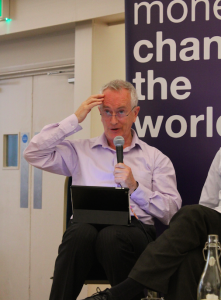
Steve Keen was asked whether he sees a shift in understanding of money creation among economists after the BoE paper last March highlighted that the mainstream understanding of money creation is wrong.
“In terms of mainstream economists, they try to fit money into the framework in exactly the same way they fit everything else. Which is why they incorporated something they call frictions. And if you don’t know what I mean by friction, think Ptolemy’s epicycles. They’ve got a model of astronomy with the Earth at the centre of the Universe and the planets and the sun orbiting us, but they can’t explain why one of the planets suddenly fly off rapidly… And they are also not escaping from seeing banks as intermediaries.”
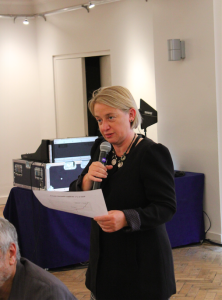
Questions and comments from the audience included remarks by Green Party leader Natalie Bennett, who challenged the panel to think about how the UK’s money system could serve sustainable society.
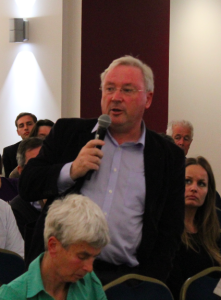
Richard Murphy argued that people’s QE is about having political/ democratic choice against private banks:
“Money is a tool – please let’s not put the bankers in charge.”
Chris Giles responded to Richard Murphy’s comment by saying that independence of the Bank of England could of course be ended if the government decided that was the right thing to do.
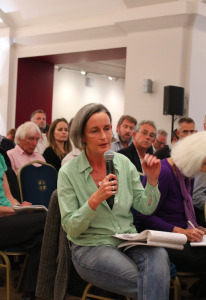
Another question was raised by the Barb Jacobson, the coordinator of UK’s Basic Income movement whether the Overt Money Finance could be used to finance Basic Income.
The response from Lord Turner: “I agree we could do QE in a basic income fashion.”
Fran raised the question of getting a Money Commission set up by the Treasury to investigate some of the ideas around monetary financing. Steve Keen said that it could be a good opportunity to keep this discussion on the Bank of England and Treasury’s agenda, and that it’s within these institutions- where the conversation needs to happen most of all.
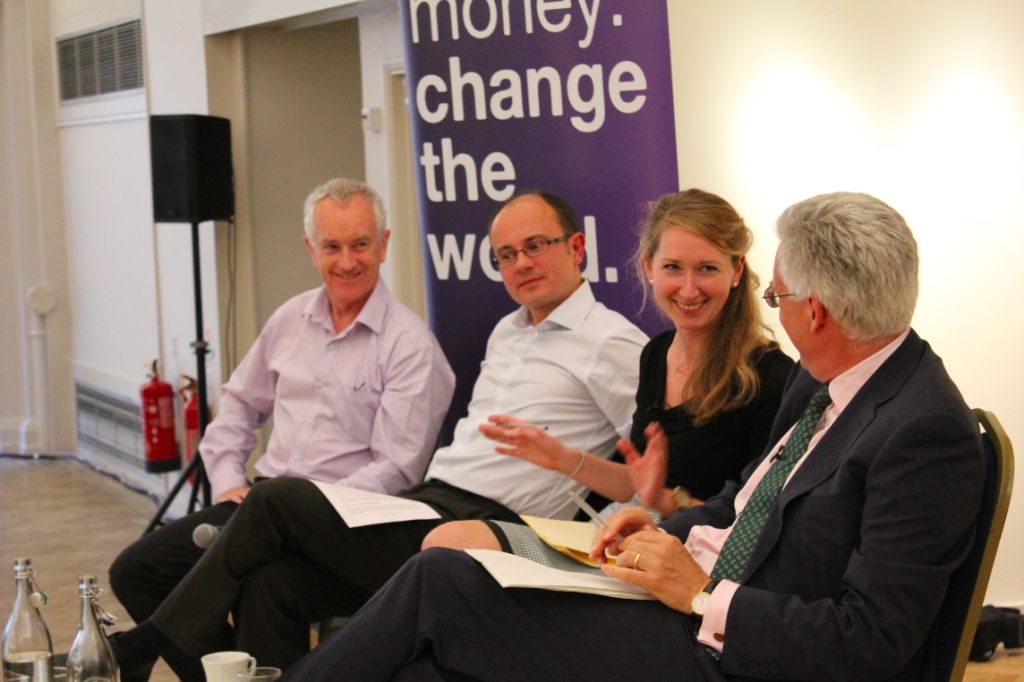
The presentation and the discussion were recorded. We’ll make the videos available shortly. Watch this space!
The event finished on a high as everyone continued interesting conversations on money over a glass of wine, very kindly provided by the Rebuilding Society – a peer to peer lending platform focused on getting loans to businesses from investors.
The lively discussions continued for some time.
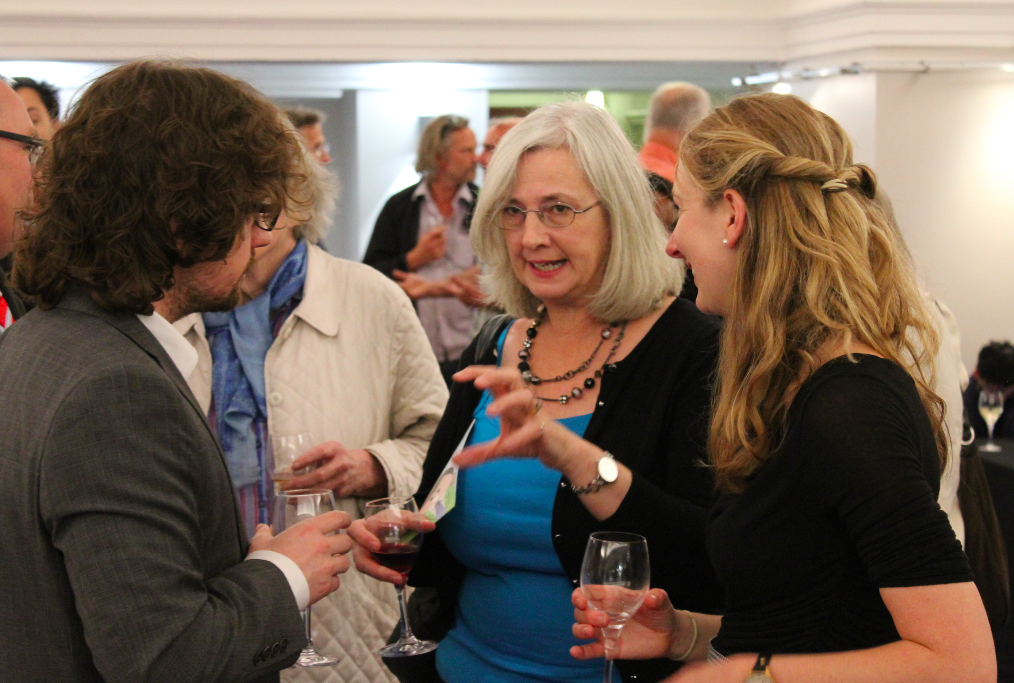
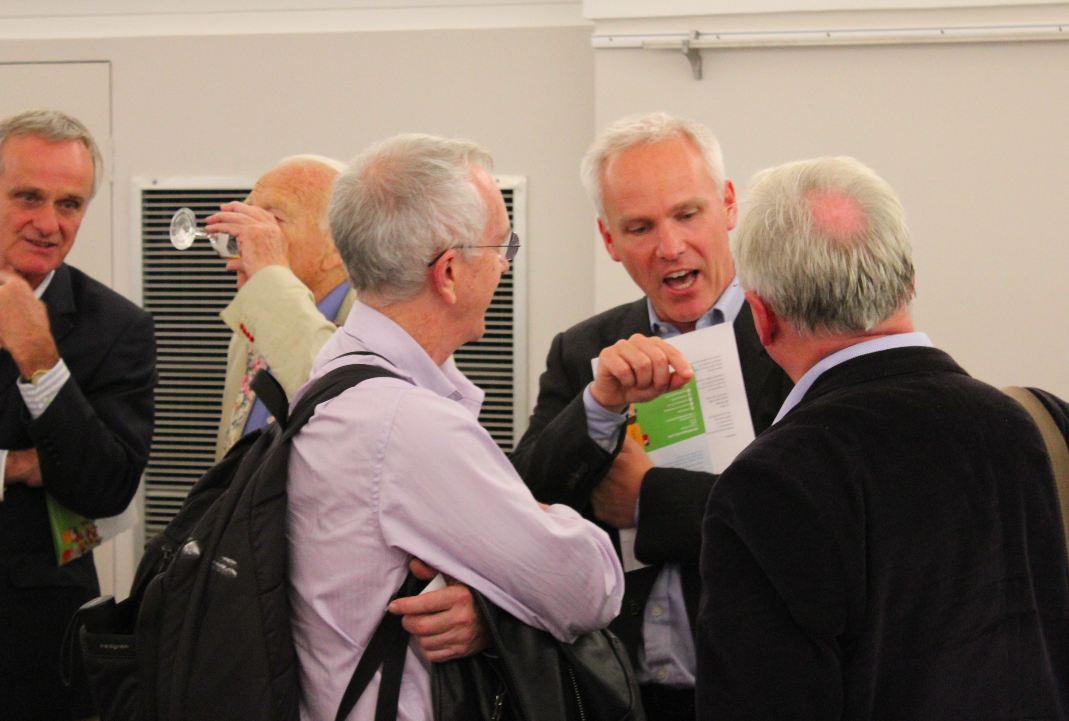
And many of us continued in the pub until late in the night.